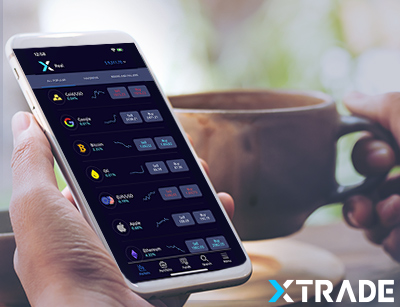An Introduction to Stock Market Indices
By X-blogger - on March 27, 2023When you check market news, you notice how prominently information about indices figures in any market update. Before you are briefed about the prices of individual companies’ shares, you hear about the movement of major indices. As of writing, for example, indices are on the rebound, spurred by a reversal in the bank selloff. After a slide, the S&P 500 snapped back and celebrated its second straight week of gains. The NASDAQ 100 edged 0.3% higher, while the FTSE is above its recent lows, brought up by the BoE’s 25 basis point rate hike.
The questions are what this information means and why it is crucial for the markets and the global economy. However, before we try to answer them, the explanation of what indices are is in order.
What Are Indices?
A stock market index measures a section of the stock market. It tracks the performance of a specific group of stocks, bonds, or other investments. These stocks, bonds, or investments are often grouped around a particular industry, such as the tech, pharmaceutical, or automobile industries. The NASDAQ is tech-heavy, and when major tech companies listed on it take a plunge, it slips, too.
Often, these industries are gathered around the stock market overall, as is the case with the S&P 500 and the Dow Jones Industrial Average. Indices are not equal in size: the Dow Jones features only 30 stocks; the FTSE 100 consists of the largest 100 qualifying UK companies, while the CRSP index contains more than 3,700 stocks. But all indices do include a sufficiently large sample size of companies to represent the overall behavior of the economic section.
How Are Indices Constructed?
How do the indices choose companies or other instruments to include? Or put differently, what criteria should companies satisfy to qualify for inclusion? There is no single propriety formula embraced by all existing indices. Each stock market index chooses its standards to put companies on its list.
Some indices include only those companies that rank highly in terms of market capitalization or in terms of the total value of all their outstanding shares. In this case, large companies have a more substantial impact on the index’s performance. Tesla, listed on the NASDAQ, had a market cap of $602.47 billion in March 2023. If the price of its stock sinks, it will pull the index deeper down than will the dropping Ericsson, whose market capitalization is now $189.16 billion.
Indices also differently determine how included companies are represented; that is, they assign a different weight to them. Depending on weighing, all companies listed on an index can have an equal impact on index performance or a different impact. This impact is based on market capitalization or share value.
If an index assigns an equal value to all included companies, they will affect its performance with an equal force, regardless of their price, size, or market value. The S&P500 Equal Weight Index (EWI) is the equal-weight version of the S&P 500. Each company in the S&P EWI is allocated a fixed weight or 0.2% of the index total at each quarterly rebalance. On this index, companies influence its performance in an equal measure, whether they are large or small.
Stock market indices can also be price-weighted. Such indices give each company a different weight, depending on the current price of its share. Companies with larger share prices have more influence on an index’s overall direction, regardless of their size. The most popular price-weighted stocks are the Dow Jones Industrial Average (DJIA) and the Nikkei 225. Microsoft, included in the Dow Jones, will move the index more than Intel Corporation, also listed there, because its current price is $280.96, much higher than Intel’s $29.39.
Why Are Indices Important?
If you want to understand the state of a country’s equity market, look no further than its indices. Indices and their movements provide insights into the economy, investors’ risk appetite, and the trends for investing. Studying stock market indices will help you make intelligent investment decisions. You should also analyze indices to manage your portfolio smartly. Indices are deeply integrated into the business of investment management. Funds use indices as benchmarks to make comparisons between companies’ performances.
How to Invest in Indices?
Indices measure the performance of a group of companies and investments. Therefore, funds based on leading indices are a recommended way to invest quickly, efficiently, and potentially profitably. Index funds and ETFs give access to a diversified portfolio of stocks and bonds and might be an excellent investment for trading novices and experienced investors. Investing in index funds and exchange-traded funds can be done with any amount of money and with any brokerage. If you want to try to put your money in indices, talk to Xtrade’s experts. They will ensure that your investment in indices brings profits.
 First Deposit Bonus
First Deposit BonusFirst Deposit Bonus | Phone Verification | First Trade on us | Account Verification














